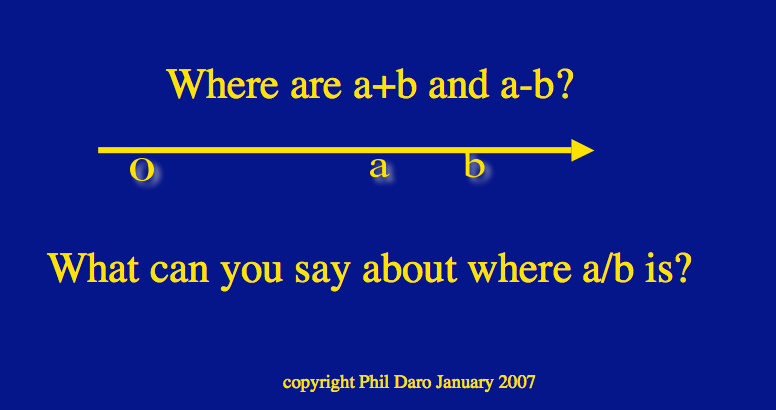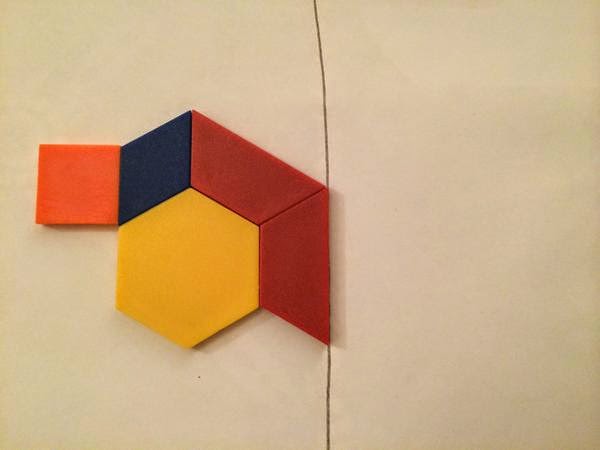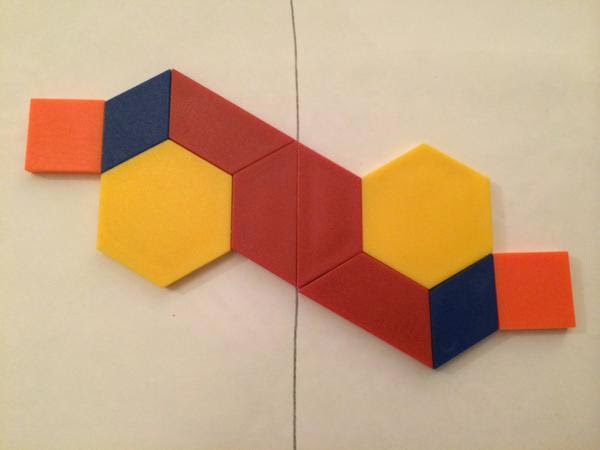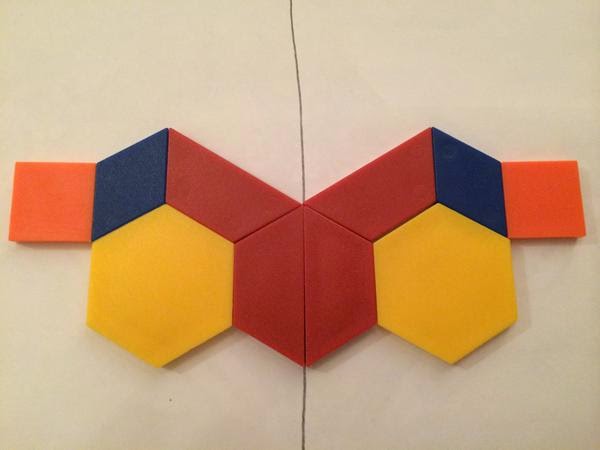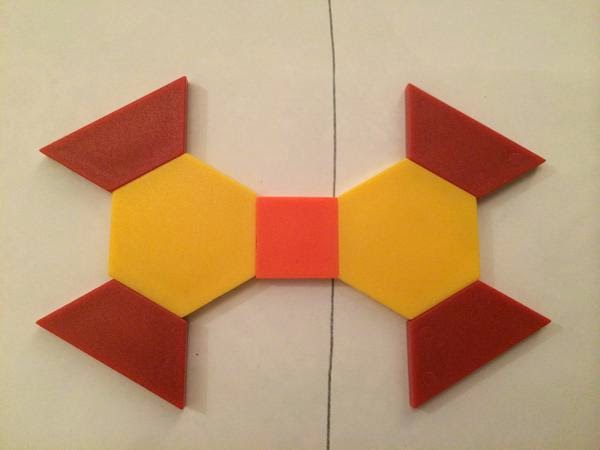10 of 10 Items .... Source: David Wees
Problems, Questions, and Puzzles to spark discussion and argument in the maths classroom.
Navigation:
- by Course
- by Type
.... - Source: @yohakupuzzle
AFP
Akiyoshi Kitaoka
Aldo Bianchi
Alex Bellos
Alfie Kohn
Amanda Austin
Amie Albrecht
Avery Pickford
Ben Orlin
Benjamin Dickman
Bill Shillito
Bob Lochel
Bowman Dickson
Bryan Anderson
Catriona Agg
Cheesemonkeysf
Chris Lusto
Chris Luzniak
Cliff Pickover
Corbettmaths
Curmudgeon
Dan Anderson
Dan Draper
Dan Meyer
Dan Pearcy
Dave Richeson (@divbyzero
David Butler
David Marain
David Martin
David Wees
DESMOS
Don Steward
Dr. Pickle
Ed Southall
Elemental_41
Emma Bell
Erich Friedman
Fawn Nguyen
Five Triangles
Frank Noschese
Futility Closet
Gabriel Rosenberg
Grabarchuk
Grant Wiggins
Howie Hua
Illustrative Math
internet
James Pearce
James Tanton
Jeff Suzuki
Jennifer Wilson
Jo Morgan (@MathsJem)
Justin Aion
Kareem Carr
Kate Nowak
KHALID
Kiran Bacche
m4ths
Marco
Mary Bourassa
MathCirclesOz
MathedUp!
Mathshell
mathsjem
Matt Enlow
Megan Schmidt
Michael Pershan
Mike Lawler
Mr. Honner
Nathan Day
NCTM
Nob
NRICH
Numberphile
NYTimes
Pam Harris
Patrick Honner
PD
Poor Elijah
Quora
rawrdimus
Rhett Allain
Robert Kaplinsky
Sam Loyd
SAT
SKG
SolveMyMaths
StatSystem
Steve Phelps
Steve Wyborney
Steven Strogatz
Sunil Singh
T.R.Milne
Talking Numbers
Taylor Belcher
TickTockMath
TriangleMan
UKMT
UVM
Vi Hart
XKCD
. . . View This Fullsize
I might have posted this puzzle before.
What do your students think?
Can they generalize it?
What is the overlapped area?
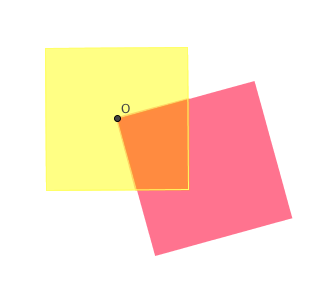
.: [GEOM], [David Wees], [Epiphany].
. . . View This Fullsize
You've been asked to shade one-third of this triangle.
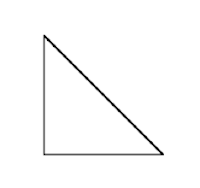
And how do you know?
Here's a response:
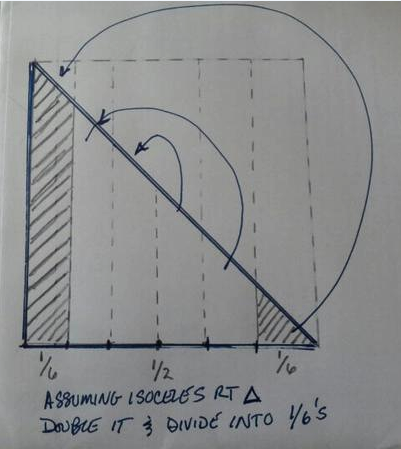
- Is this a valid way to get one-third of the triangle?
- Does this technique require that we stipulate a right triangle?
- Does this technique require that we stipulate an isosceles one?
- Do the lines have to be parallel to each other?
- Do the lines have to be parallel to a side for this to work?
- Perpendicular to a side for this to work?
- How might we generalize this method (if it can be generalized)?
.: [GEOM], [David Wees], [Explainer].
. . . View This Fullsize
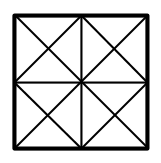
Q1: How many different ways are there to shade this to show \(\frac{1}{4}\)?
Q2: How might kids shade this to show \(\frac{1}{4}\)?
.: [PREALG], [David Wees], [How Many Ways?].
. . . View This Fullsize
Mathematical Grammar ... I think a comma might be necessary in #2, maybe two of them. What do you think, students?
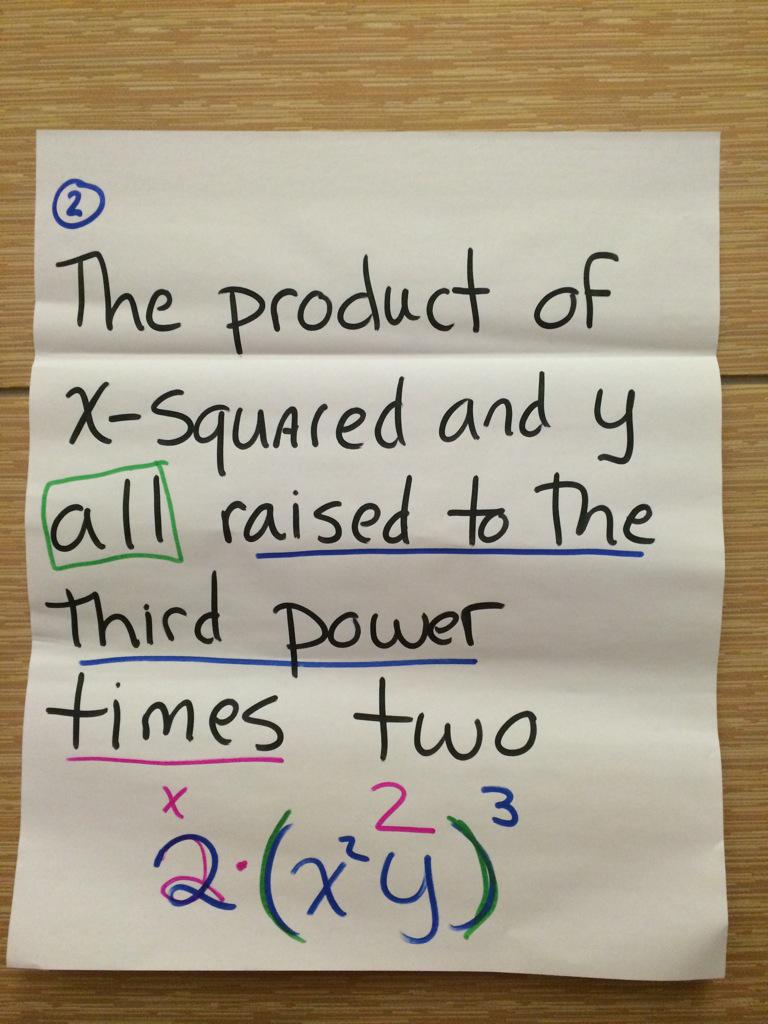
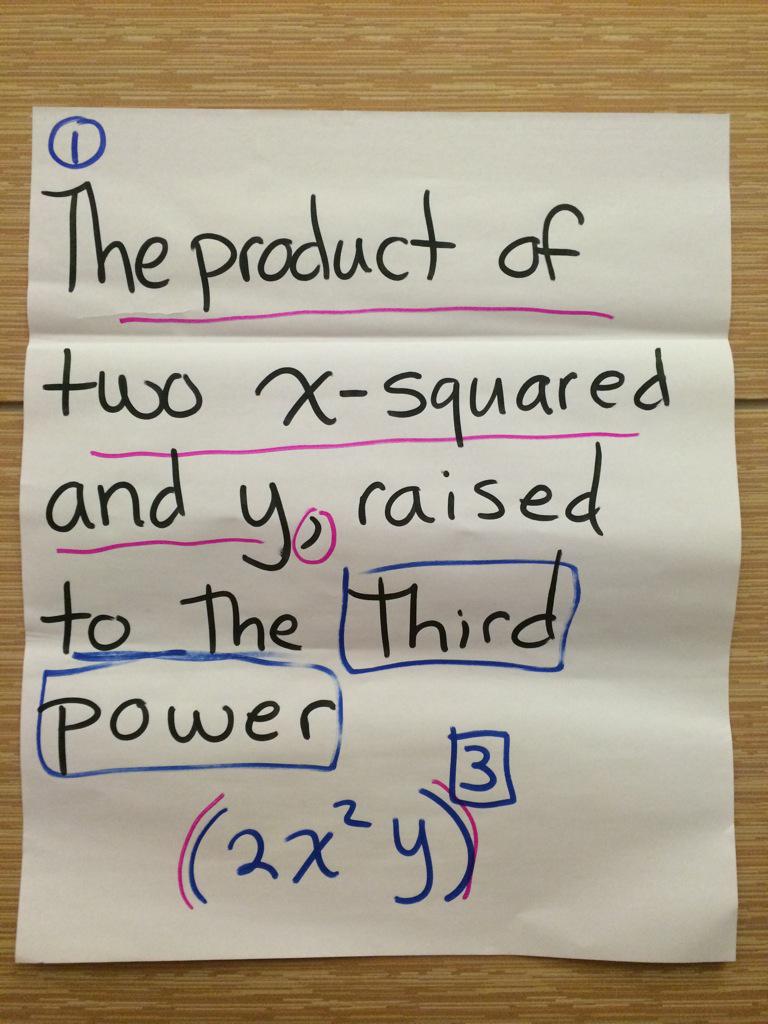
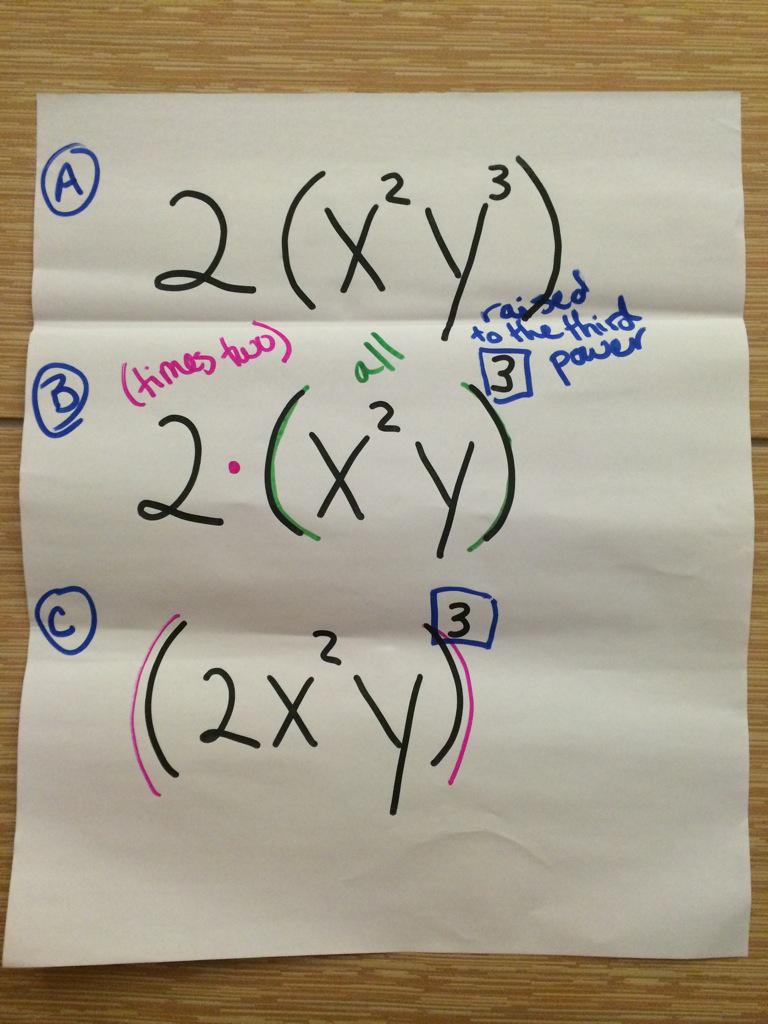
.: [ALL], [David Wees], [Find the Error].
. . . View This Fullsize

What do you see?
What do you wonder?
.: [PREALG], [David Wees], [Notice, Wonder].
. . . View This Fullsize
Here is an expression: \(x² + 6x = x² - 8x + 4\)
Would you describe it as "quadratic" or "linear"?
If the \(x^2\) terms cancel out, does that change your thought?
Is this wolframalpha plot helpful?
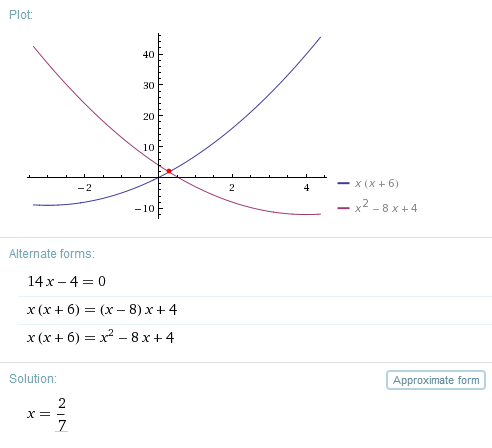
Is this desmos response helpful?

.: [ALG], [David Wees], [Notice, Wonder].
. . . View This Fullsize
In a fascinating bit of testimony before a Michigan Senate Hearing, this slide was presented. The presenter (Dr. Ball) asked the legislators to identify where and how the 4th-grade solvers made their mistakes.
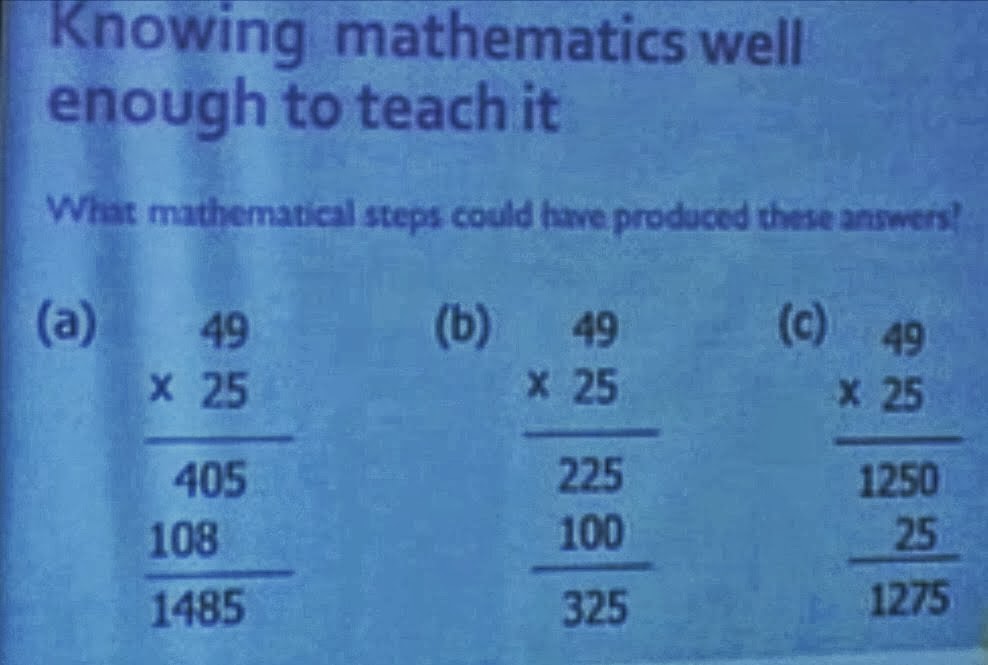
David Wees asks:
"What is the mistake?"
"What is the thinking that led to this mistake?"
I saw both for (b) and (c) but the train of thought in (a) escaped me completely. What do you think happened in (a)?
What would you tell the students in each case?
.: [Teacher Education], [David Wees], [Find the Error].
. . . View This Fullsize
Is "basically infinite" finite?
— David Wees (@davidwees)
.: [ALL], [David Wees], [Definitions].
